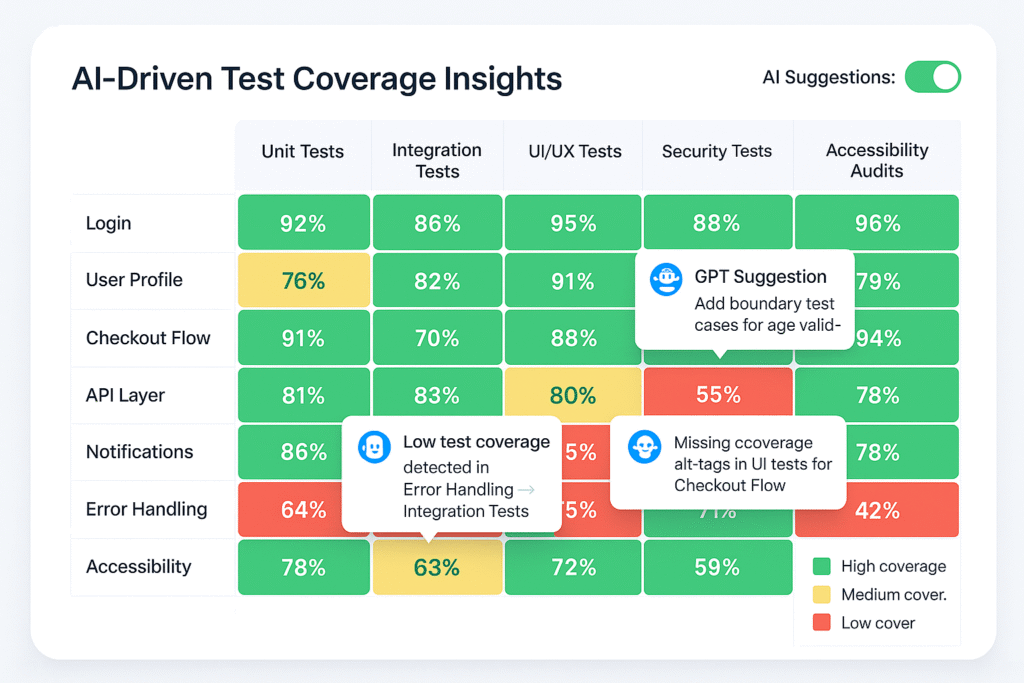AI is reshaping the way enterprises operate, but one fundamental challenge still exists: Most applications were not built with AI in mind. Traditional enterprise systems are designed for transactions, not intelligent decision-making, making it difficult to integrate AI at scale. To bridge this gap, MongoDB and Capgemini are enabling businesses to modernize their infrastructure, unify data platforms, and power AI-driven applications.
This blog explores the trends driving the AI revolution and the role that Capgemini and MongoDB play in powering AI solutions.
The Challenge: Outdated infrastructure is slowing AI innovation
In talking to many customers across industries, we have heard the following key challenges in adopting AI:
-
Data fragmentation: Organizations have long struggled with siloed data, where operational and analytical systems exist separately, making it difficult to unify data for AI-driven insights.
In fact, according to the Workday Global survey, 59% of C-suite executives said their organizations’ data is somewhat or completely siloed, which results in inefficiencies and lost opportunities. Moreover, AI workloads such as retrieval-augmented generation (RAG), semantic search, and recommendation engines require vector databases, yet most traditional data architectures fail to support these new AI-driven capabilities.
-
Lack of AI-ready data infrastructure: The lack of AI-ready data infrastructure forces developers to work with multiple disconnected systems, adding complexity to the development process.
Instead of seamlessly integrating AI models, developers often have to manually sync data, join query results across multiple platforms, and ensure consistency between structured and unstructured data sources. This not only slows down AI adoption but also significantly increases the operational burden.
The solution: AI-Ready data infrastructure with MongoDB and Capgemini
Together, MongoDB and Capgemini provide enterprises with the end-to-end capabilities needed to modernize their data infrastructure and harness AI’s full potential.
MongoDB provides a flexible document model that allows businesses to store and query structured, semi-structured, and unstructured data seamlessly, a critical need for AI-powered applications. Its vector search capabilities enable semantic search, recommendation engines, RAG, and anomaly detection, eliminating the need for complex data pipelines while reducing latency and operational overhead. Furthermore, MongoDB’s distributed and serverless architecture ensures scalability, allowing businesses to deploy real-time AI workloads like chatbots, intelligent search, and predictive analytics with the agility and efficiency needed to stay competitive.
Capgemini plays a crucial role in this transformation by leveraging AI-powered automation and migration frameworks to help enterprises restructure applications, optimize data workflows, and transition to AI-ready architectures like MongoDB. Using generative AI, Capgemini enables organizations to analyze existing systems, define data migration scripts, and seamlessly integrate AI-driven capabilities into their operations.
Real-world use cases
Let’s explore impactful real-world use cases where MongoDB and Capgemini have collaborated to drive cutting-edge AI projects.
-
AI-powered field operations for a global energy company: Workers in hazardous environments, such as oil rigs, previously had to complete complex 75-field forms, which slowed down operations and increased safety risks. To streamline this process, the company implemented a conversational AI interface, allowing workers to interact with the system using natural language instead of manual form-filling. This AI-driven solution has been adopted by 120,000+ field workers, significantly reducing administrative workload, improving efficiency, and enhancing safety in high-risk conditions.
-
AI-assisted anomaly detection in the automotive industry: Manual vehicle inspections often led to delays in diagnostics and high maintenance costs, making it difficult to detect mechanical issues early. To address this, an automotive company implemented AI-powered engine sound analysis, which used vector embeddings to identify anomalies and predict potential failures before they occurred. This proactive approach has reduced breakdowns, optimized maintenance scheduling, and improved overall vehicle reliability, ensuring cost savings and enhanced operational efficiency.
-
Making insurance more efficient: GenYoda, an AI-driven solution developed by Capgemini, is revolutionizing the insurance industry by enhancing the efficiency of professionals through advanced data analysis. By harnessing the power of MongoDB Atlas Vector Search, GenYoda processes vast amounts of customer information including policy statements, premiums, claims histories, and health records to provide actionable insights.
This comprehensive analysis enables insurance professionals to swiftly evaluate underwriters’ reports, construct detailed health summaries, and optimize customer interactions, thereby improving contact center performance. Remarkably, GenYoda can ingest 100,000 documents within a few hours and deliver responses to user queries in just two to three seconds, matching the performance of leading AI models. The tangible benefits of this solution are evident; for instance, one insurer reported a 15% boost in productivity, a 25% acceleration in report generation—leading to faster decision-making—and a 10% reduction in manual efforts associated with PDF searches, culminating in enhanced operational efficiency.
Conclusion
As AI becomes operational, real-time, and mission-critical for enterprises, businesses must modernize their data infrastructure and integrate AI-driven capabilities into their core applications. With MongoDB and Capgemini, enterprises can move beyond legacy limitations, unify their data, and power the next generation of AI applications.
For more, watch this TechCrunch Disrupt session by Steve Jones (EVP, Data-Driven Business & Gen AI at Capgemini) and Will Shulman (former VP of Product at MongoDB) to learn about more real world use cases. And discover how Capgemini and MongoDB are driving innovation with AI and data solutions.
Source: Read More


